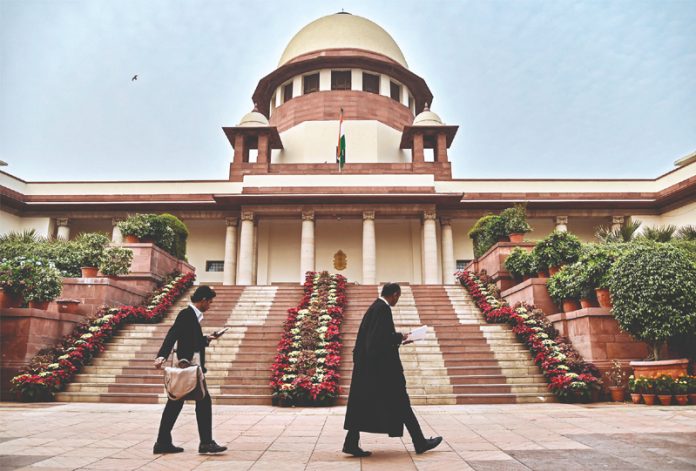The recent lamentation by the Supreme Court over the laxity in adhering to timelines for the recruitment of judicial officers across various states in the country underscores a crucial issue plaguing the judicial system: the need for efficiency and transparency in the recruitment process. The apex court’s observation regarding the failure of most states to meet prescribed timelines for filling vacancies in district and subordinate courts raises pertinent questions about the efficacy of our judicial recruitment mechanisms and the impact of such delays on the delivery of justice. The Supreme Court rightfully highlighted the importance of adhering to prescribed timelines for judicial recruitment, noting that only a handful of states out of the total completed the induction of civil judges within the stipulated time frame. This failure not only reflects poorly on the commitment of state authorities towards timely judicial appointments but also raises concerns about the potential backlog of cases due to understaffing in courts.
The judiciary plays a pivotal role in upholding the rule of law and ensuring access to justice for all citizens. However, the effectiveness of the judiciary is significantly compromised when there are delays in the recruitment of judicial officers. Vacancies in courts lead to overburdened judges, prolonged legal proceedings, and ultimately, delayed justice for litigants. Therefore, it is important for the recruitment process to be streamlined and efficient to maintain the integrity and efficacy of the judicial system. The Supreme Court’s emphasis on the need for a time schedule for conducting judicial service examinations is a step in the right direction. Establishing clear timelines and adhering to them not only expedites the recruitment process but also instils confidence in the judiciary among stakeholders. Transparency and accountability are essential pillars of any democratic institution, and the judiciary is no exception. Delays and irregularities in recruitment undermine public trust and confidence in the judiciary’s ability to dispense justice impartially.
Moreover, the Supreme Court’s directive regarding the moderation of marks and the designation of interview panel members aims to enhance transparency and fairness in the selection process. The inclusion of clear guidelines for the moderation of marks and the designation of interview panel members will ensure consistency and impartiality in the evaluation of candidates. This move is particularly significant in addressing concerns about favouritism or bias in the recruitment process, thereby reinforcing the credibility of judicial appointments. Another key aspect highlighted by the Supreme Court is the necessity of a designated authority for candidates to approach in case of doubts or clarifications regarding the recruitment process. Establishing a designated authority with clearly defined roles and responsibilities will provide candidates with a channel to seek redress for grievances. Furthermore, the suggestion to provide a basic outline of the syllabus for the proposed test is a welcome move towards promoting inclusivity and diversity in the recruitment process. Providing candidates with a clear understanding of the syllabus, irrespective of their backgrounds, enables them to prepare adequately for the examination. This step is particularly beneficial for candidates from marginalised or underrepresented communities who may lack access to resources for exam preparation.
Keeping in view all these aspects, the Supreme Court’s recent judgement serves as a clarion call for reforms in the judicial recruitment process. Timeliness, transparency, and fairness are indispensable principles that must underpin the recruitment of judicial officers to uphold the sanctity of the judiciary and ensure the delivery of justice to all citizens. The responsibility for recruiting Lower Court officials lies solely with the States and UTs, both financially and in terms of the recruitment process. Local Governments must grasp the seriousness of the situation, especially considering the number of vacancies. This ongoing issue is not only hindering the delivery of justice but also affecting governance adversely. All stakeholders need to take action promptly in the best interests of the nation.
Trending Now
E-Paper


